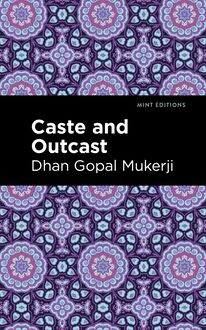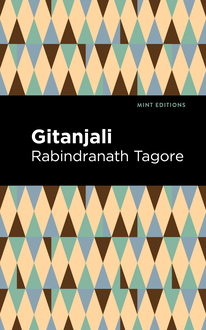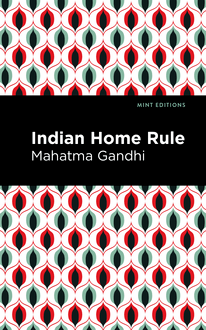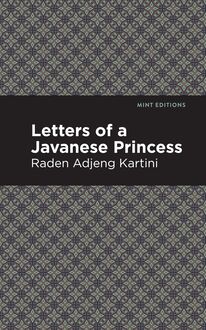-
 Univers
Univers
-
 Ebooks
Ebooks
-
 Livres audio
Livres audio
-
 Presse
Presse
-
 Podcasts
Podcasts
-
 BD
BD
-
 Documents
Documents
-
- Cours
- Révisions
- Ressources pédagogiques
- Sciences de l’éducation
- Manuels scolaires
- Langues
- Travaux de classe
- Annales de BEP
- Etudes supérieures
- Maternelle et primaire
- Fiches de lecture
- Orientation scolaire
- Méthodologie
- Corrigés de devoir
- Annales d’examens et concours
- Annales du bac
- Annales du brevet
- Rapports de stage
La lecture à portée de main
Vous pourrez modifier la taille du texte de cet ouvrage
Découvre YouScribe en t'inscrivant gratuitement
Je m'inscrisDécouvre YouScribe en t'inscrivant gratuitement
Je m'inscrisEn savoir plus
Vous pourrez modifier la taille du texte de cet ouvrage
En savoir plus

Description
Love and Life Behind the Purdah (1901) is a collection of short stories by Indian writer, lawyer, and social reformer Cornelia Sorabji. Raised by Christian missionaries, Sorabji trained as a lawyer at Oxford University before returning to India to work with women and orphans across the country. Her fictional work illustrates a creative imagination and well-rounded sense of the diverse political and religious identities that make up the population of India.
In her first published book, Sorabji spins tales of women and children from varied sociopolitical backgrounds. Writing on the Hindu purdahnashin—women cut off from the outside world—Sorabji drew on her experience as a litigator representing these oppressed figures in legal cases regarding property rights and other instances of oppression. Other stories in the collection follow Zoroastrian priestesses and the lives of orphaned children, character studies which serve as crucial catalysts for the discussion of child marriage, the practice of sati, and other controversial traditions prominent in India in the nineteenth century. Love and Life Behind the Purdah is a beautiful, informative meditation on the necessity of perseverance in the face of famine, disease, silence, and death. A lawyer at heart, Sorabji weaves powerful political commentary into her vibrant prose portraits of women and children down, but never out.
With a beautifully designed cover and professionally typeset manuscript, this edition of Cornelia Sorabji’s Love and Life Behind the Purdah is a classic work of Indian literature reimagined for modern readers.
Sujets
Informations
| Publié par | Mint Editions |
| Date de parution | 20 avril 2021 |
| Nombre de lectures | 0 |
| EAN13 | 9781513285160 |
| Langue | English |
| Poids de l'ouvrage | 2 Mo |
Informations légales : prix de location à la page 0,0350€. Cette information est donnée uniquement à titre indicatif conformément à la législation en vigueur.
Extrait
Love and Life Behind the Purdah
Cornelia Sorabji
Love and Life Behind the Purdah was first published in 1901.
This edition published by Mint Editions 2021.
ISBN 9781513280141 | E-ISBN 9781513285160
Published by Mint Editions®
minteditionbooks.com
Publishing Director: Jennifer Newens
Design & Production: Rachel Lopez Metzger
Project Manger: Micaela Clark
Typesetting: Westchester Publishing Services
C ONTENTS A L ETTER FROM L ORD H OBHOUSE TO THE A UTHOR T HE P ESTILENCE AT N OONDAY L OVE AND L IFE L OVE AND D EATH U RMI G REATER L OVE B EHIND THE P URDAH M ALAPPA A L IVING S ACRIFICE T HE F IRE IS Q UENCHED ! A CHTHAR P UNDIT - JE
This collection of Indian stories will be found both interesting and suggestive.
They are charmingly told, they are full of incident, and they exhibit to us from the inside, as it were, customs and ways of living and of thinking which we usually contemplate from the outside only, and which we are apt to consider and appraise through the mists of our own European prejudices.
The writer is herself an Indian, and one whose strength of character and talent have enabled her to face the difficulties of a University education, and to pass successfully the examinations which, in the case of a male student, would qualify him to practise at the Indian Bar.
The aim and ambition of Miss Sorabji’s life has been to benefit and to serve her countrywomen, and in these pages will be found evidences of her deep sympathy and affection for them.
Her stories set before us, in the most attractive way, the tender, faithful, meek, and lowly character of the Indian woman, combined as it so often is with a quiet persistence and strength, and with an unselfishness which amounts to self-sacrifice.
Perhaps in these days of stress and strain, of activity and competition, a peculiar interest may be found in contemplating lives spent in the strict privacy of the purdah, under the iron discipline of custom, and in observing, with reverence and admiration, the way in which the virtues of patience, charity, self-forgetfulness, and devotion to duty, flourish in this silent and secluded world.
It is true that in these stories heroic actions are often performed from mistaken motives and through superstitious fears, but we may certainly hope and believe, that, like as suttee has disappeared before the march of Christianity and of civilization, so other trials peculiar to the lives of Indian women may gradually soften and pass away.
H ARIOT D UFFERIN and AVA
A L ETTER FROM L ORD H OBHOUSE TO THE A UTHOR
Dear Miss Sorabji,—I have to thank you for allowing me to read in quiet the tales of Indian life which you have composed. My own connection with India was not such as to bring me into personal contact with those social and domestic affairs of which you treat. I resided there not longer than five years. My time and energies were fully occupied with office work. I learned not a word of any of the vernacular languages, and only a few expressions of the more artificial lingua franca of the educated classes. Even in this Hindustani I rarely trusted myself to speak except to give directions to my own servants. A man so situated cannot get any but the most superficial notions of the multitudes around him.
The physical features of a portion of the vast country I traversed; the external appearance of portions of its multifarious populations; brief occasions of friendly intercourse with men of high rank and cultivated minds with whom my official position brought me into acquaintance; an examination here and there into the working of some law among the people,—such alone were my opportunities of knowledge at first-hand. At second-hand, I, like everybody else who sees much of the administrative class, heard many of their ideas from various points of view and under different circumstances. After my return it became my duty to pay attention to Indian lawsuits coming before the king in council; and from them I have got some partial, incomplete, and hasty glimpses into the interior of Indian villages and domestic life. Owing to these circumstances it is possible that an Indian story, such as you tell, may convey a more vivid impression, perhaps a truer one, to me than to one who has never been in India at all. But I am very far indeed from being qualified to pass any judgment on your book as a work of art, or to comment on it as you invite me to do. To express opinions of its fidelity to the Indian life which I have not seen, would be presumptuous; and if I were to attempt it, not only would you yourself detect the imposture, but any other reader would soon find out which of us was writing with knowledge and which without.
There is, however, one subject of considerable importance which has been much impressed on me by my experience in Indian litigation; and that is the position of the Indian woman who is of sufficiently high rank to be a parda-nashin . I am not now speaking of the social side of the seclusion of women. It is obvious to any observer what a bar it presents to social intercourse, and how profoundly impediments to social intercourse weaken the political structure of a country. But as with the cognate institutions of caste, of village communities, or of ancestor-worship, so with these ideas of what is due to the dignity of women—long custom has woven them into the very fabric of Indian society. It may be, probably is, the case that they prevent the gradual fusion of tribes, castes, communities, families, or other limited divisions of mankind, into the higher order of a nation; but among the individuals of these limited divisions they form a social cement of the strongest conservative force. Not only do they preserve peace and order, but, unless my impressions are much mistaken, they meet some social needs in easier fashion than is found possible in the more vigorous national life of Western Europe. For instances, I should mention the settlement of petty disputes and the support of the indigent. If it were possible to take away these social sanctions suddenly, or even rapidly, the result would be chaos, some frightful disruptions and convulsions. The traditions of the multitudinous social aggregates in India, all strengthened and endeared to them by a halo of religion, are—or so at least it seems to one who is not of them—to each the world in which they live and move and have their being, socially keeping each in their places, just as the insensible force of gravitation and the insensible pressure of the atmosphere do physically for all of us. They supply the support and guidance of life, all that is done for us by kings, parliaments, law-courts, churches, schools, and, in addition, by the still more constant and powerful, though subtle and undefined, influence of public opinion, the desire to stand well with our families, friends, and neighbours. Such safeguards of conduct cannot be beneficially removed or weakened except by some extremely slow and gradual process of thought, by which broader and more elastic principles of social obligation may be substituted for narrower rules, giving as much support with greater freedom of movement. That is a matter for the distant future and for infinite incalculable workings of the human spirit.
Nevertheless, with all my respect for the reign of custom and tradition, and with full perception of the danger of rude interference with the delicate tissues of family life and personal feelings, it is consistent to advocate plans by which their inconvenient consequences may be lessened. The inconveniences attending on the seclusion of an Indian lady when she has dealings with the outer world are constantly coming to the surface. A large number of ladies own property, and some are owners of large and important properties. They cannot escape from the responsibilities of ownership, nor can they rightly perform the duties or receive the benefits attaching to it, without entering into legal relations with the world outside. The Hindu and Mohammedan laws are neither of them unfavourable to women as regards the enjoyment of property; indeed, both of them are much more favourable than our English common law, whose rigour against the female sex has only within the last few years been mitigated by statute. But behind the law there is the custom which makes it dishonourable for Indian ladies to “appear before” any male person except within a limited range of their own family. This interposes serious difficulties in their dealing with property. The effect is to prohibit free and unrestrained conversation between the lady and a male outsider. And as every professional lawyer is of the male sex, communication between the lady and her legal adviser is much impeded. A fortiori , it is so with other persons who have business with her. Talking with a person behind a curtain is a very different thing from talking face to face. Indeed it is not always certain that the man outside has got hold of the right woman inside. She requires identification by someone who has the right to be inside, and fraudulent personations are not unknown. It may be that the males of the family are the very persons about whose encroachments the lady wants advice—a point which is illustrated by one of your present sketches.
This is a mere outline of the case, which to be accurate would require both qualification and supplement; but it is true enough to warrant the assertion that the rights which are clearly conferred on Indian women by law are subject to large practical drawbacks by the practice of secluding ladies. To show the extent and importance of these drawbacks, it is only necessary to cite a well-known rule of law established in Indian courts. Everyone who comes to enforce a contract against a parda-nashin finds that the ordinary presumptions of law are inverted to his disadvantage. Instead of presuming that the legal owners of property know what they are about when they deal with it, he
-
 Univers
Univers
-
 Ebooks
Ebooks
-
 Livres audio
Livres audio
-
 Presse
Presse
-
 Podcasts
Podcasts
-
 BD
BD
-
 Documents
Documents
-
Jeunesse
-
Littérature
-
Ressources professionnelles
-
Santé et bien-être
-
Savoirs
-
Education
-
Loisirs et hobbies
-
Art, musique et cinéma
-
Actualité et débat de société
-
Jeunesse
-
Littérature
-
Ressources professionnelles
-
Santé et bien-être
-
Savoirs
-
Education
-
Loisirs et hobbies
-
Art, musique et cinéma
-
Actualité et débat de société
-
Actualités
-
Lifestyle
-
Presse jeunesse
-
Presse professionnelle
-
Pratique
-
Presse sportive
-
Presse internationale
-
Culture & Médias
-
Action et Aventures
-
Science-fiction et Fantasy
-
Société
-
Jeunesse
-
Littérature
-
Ressources professionnelles
-
Santé et bien-être
-
Savoirs
-
Education
-
Loisirs et hobbies
-
Art, musique et cinéma
-
Actualité et débat de société
- Cours
- Révisions
- Ressources pédagogiques
- Sciences de l’éducation
- Manuels scolaires
- Langues
- Travaux de classe
- Annales de BEP
- Etudes supérieures
- Maternelle et primaire
- Fiches de lecture
- Orientation scolaire
- Méthodologie
- Corrigés de devoir
- Annales d’examens et concours
- Annales du bac
- Annales du brevet
- Rapports de stage

















